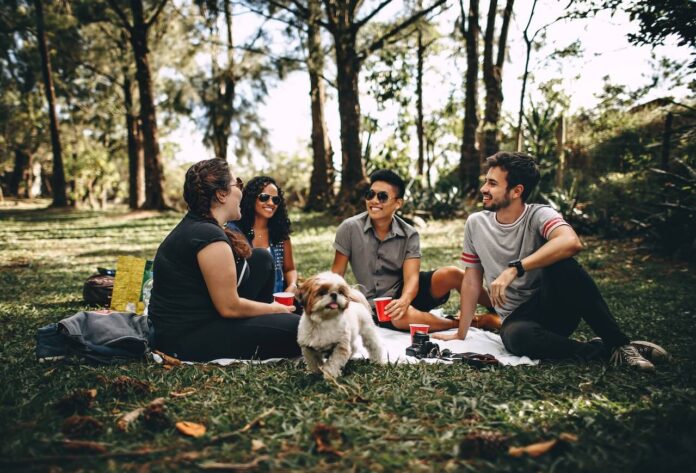Do you want a new friend but you don’t know how to create lifelong friendships? No problem! See here how you can do it! Human beings are social creatures, thriving on meaningful connections and the warmth of companionship. Friends play a significant role in our lives, providing support, laughter, and shared experiences that enrich our journey. But how do we embark on the journey of making new friendships? In a world that can sometimes feel disconnected, it’s important to recognize that friendship is not solely a matter of chance; it can be cultivated and nurtured with intention and effort.
In this article, we will explore practical and effective ways to forge new friendships, providing valuable insights and strategies to build bridges connecting you with like-minded individuals. Whether you’re starting a new chapter in life or simply looking to expand your social circle, join us as we delve into the art of making friendships that can last a lifetime.
Here are some steps you can take to create lifelong friendships:
Making new friendships can be an exciting and rewarding experience. You need to:
Be open and approachable
Show a positive and friendly attitude toward others. Smile, make eye contact, and be receptive to conversations. Approach people with warmth and genuine interest.
Join social activities or groups
Participate in activities or groups that align with your interests or hobbies. This can include sports clubs, book clubs, volunteer organizations, or hobby-based meetups. Being in these settings allows you to meet like-minded individuals who share similar interests.
Initiate conversations
Take the first step by initiating conversations with people you meet. Start with small talk and gradually move towards deeper topics. Ask open-ended questions to show genuine curiosity and actively listen to what the other person has to say.
Be a good listener
Show interest in what others have to say and actively listen to them. Pay attention to their thoughts, feelings, and experiences. Show empathy and validate their emotions. People appreciate those who listen attentively and make them feel heard.
Be yourself
Authenticity is key to building meaningful friendships. Be true to yourself and let your personality shine. Don’t pretend to be someone you’re not, as it can be exhausting and may lead to superficial connections. Embrace your uniqueness and allow others to appreciate you for who you are.
Show kindness and be supportive
Be kind, compassionate, and supportive towards others. Offer help when needed and celebrate their successes. Small acts of kindness go a long way in building trust and forming deeper connections with people.
Follow up and stay connected
After meeting someone new, follow up with them by exchanging contact information or connecting on social media. Invite them for a coffee, a walk, or any activity that allows you to spend more time together. Stay connected by initiating plans or reaching out periodically.
Be patient and persistent
Building friendships takes time and effort. Not every connection will develop into a close friendship, but don’t be discouraged. Keep putting yourself out there, meeting new people, and nurturing existing relationships. Over time, you’ll find those special individuals with whom you can develop strong bonds.
Remember, making friends is a mutual process, so don’t hesitate to reciprocate efforts if someone is trying to befriend you. Building friendships requires genuine connection, shared experiences, and investment from both sides.
Here are some additional tips and insights to further extend the information on making new friendships:
1. Step out of your comfort zone
Making new friendships often requires stepping out of your comfort zone. Be willing to try new things and put yourself in social situations where you can meet new people. It can be intimidating at first, but growth and new connections often happen outside of our comfort zones.
2. Be a good friend
Friendships are built on mutual trust, respect, and support. Show up for your friends, be reliable, and be there for them in good times and bad. Be a good listener, offer advice when needed, and provide a shoulder to lean on. Being a good friend attracts others who value and reciprocate those qualities.
3. Be mindful of common interests
While shared interests are not the sole foundation of a friendship, they can provide a starting point for building connections. Engage in activities or join communities where you are likely to meet people who share your passions. This common ground can create a natural bond and provide topics to discuss and explore together.
4. Diversify your social circles
Don’t limit yourself to one particular group or community. Expand your horizons by interacting with people from various backgrounds, cultures, and age groups. Embracing diversity enriches your social experiences and exposes you to different perspectives and ideas.
5. Be patient and give it time
Developing deep and lasting friendships takes time. It’s important to be patient and allow relationships to grow naturally. Building trust and a strong connection cannot be rushed. Invest time and effort into nurturing the friendship, and over time, it will evolve into something meaningful.
6. Embrace vulnerability
Opening up and sharing personal experiences and feelings can help deepen friendships. It’s important to find a balance between being open and respecting personal boundaries. By being vulnerable, you create an environment where others feel comfortable sharing their vulnerabilities, fostering a deeper bond.
7. Maintain a positive mindset
Approaching friendship with a positive mindset can make a significant difference. Be optimistic, and friendly, and avoid making assumptions or prejudgments about others. Having a positive attitude attracts people and makes you more approachable.
8. Online and offline opportunities
In today’s digital age, both online and offline interactions offer opportunities to make friends. Social media platforms, online communities, and forums can be a great way to connect with like-minded individuals. However, remember to balance your online interactions with real-life interactions for deeper and more meaningful connections.
9. Be a good communicator
Effective communication is vital for building and maintaining friendships. Practice active listening, be respectful of other’s opinions, and express yourself honestly and clearly. Misunderstandings can arise, so be open to addressing conflicts or differences constructively and respectfully.
10. Don’t forget existing friendships
While making new friendships is important, it’s equally essential to nurture and appreciate existing ones. Show your friends that you value and care for them. Quality friendships require ongoing effort and attention.
Remember that not all friendships will develop into lifelong bonds, and that’s okay. Cherish the connections you make, even if they’re short-lived, as each interaction can bring joy, growth, and learning experiences.

